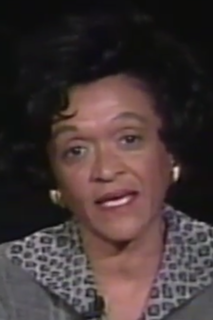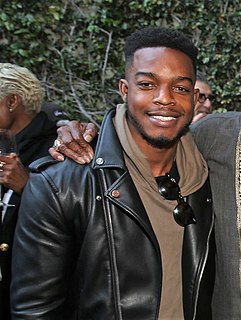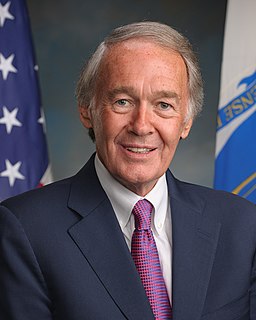A Quote by Shelby Steele
I grew during segregation in an all-black segregated neighborhood with segregated schools, etcetera. I was raised by a great father, my hero, who I much admired. So, I never really had anxiety in the way that someone like Obama would have. When he walks down the street alone, since no one knows who his mother is, they're just going to see him as a black guy.
Related Quotes
If you have an all-white neighborhood you don't call it a segregated neighborhood. But you call an all-black neighborhood a segregated neighborhood. And why? Because the segregated neighborhood is the one that's controlled by the ou - from the outside by others, but a separate neighborhood is a neighborhood that is independent, it's equal, it can do - it can stand on its own two feet, such as the neighborhood. It's an independent, free neighborhood, free community.
I think Hollywood is incredibly segregated. I've never seen any place like it. The gatekeepers who are the most progressive activists inspired to make the world better... they're better people, right? They're segregated. It's self segregated in some cases, but there's nobody Black in charge of anything in Hollywood.
Once I start to do a film, it has inferences. If a guy walks down a street and kicks a dog, you're saying something about that guy. A guy walks down the street and somebody's about to be run over and he shoves him out of his way and gets hit by the car himself, you're saying that guy's a hero. You can't avoid making certain statements.
I would say I'm black because my parents said I'm black. I'm black because my mother's black. I'm black because I grew up in a family of all black people. I knew I was black because I grew up in an all-white neighborhood. And my parents, as part of their protective mechanisms that they were going to give to us, made it very clear what we were.
If you're going to compare a middle-income black kid with a middle- income white kid, and, say, you control for family background, family education, and family income, and if this middle-income black kid doesn't score as well as the white kid on the test, then I say, look, you haven't taken into consideration the cumulative effect of living in a segregated neighborhood and going to a de facto segregated school. You're denying a position at Harvard or some other place to a kid that really could make it. That's why I support affirmative action that's based on both class and race.
Jesse Owen was bigger than a black hero, he was an American hero. For me, I looked at it from that perspective. Through my research, I obviously learned a lot, much of which made me sad, upset, disappointed and even angry, regarding what Jesse had to go through. Not only was he a black man in America during an age of high racial tension and segregation, but he was also living in the middle of the Great Depression - it was very difficult times for him and his family.


































